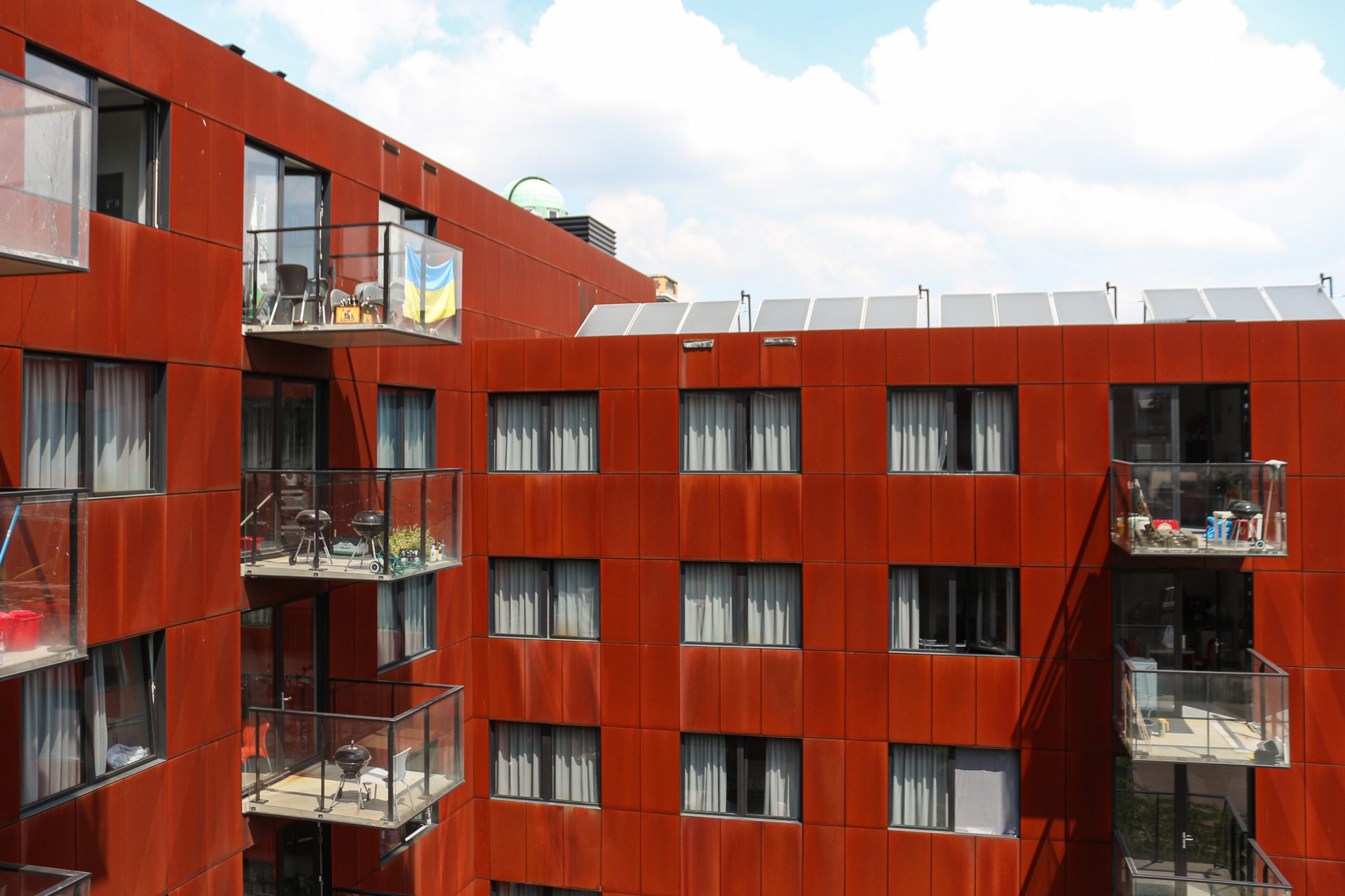After a court case won, unions are calling on the cabinet to stop excluding students from the energy allowance. They threaten with actions. Should Delft students participate?
Student complex on the Professor Schermerhornstraat. Delft does pay out an energy allowance to students, but many will not qualify. (Photo: Justyna Botor)
The energy allowance, which was originally set at 800 euros, is intended to help low-income groups pay their energy bills, as energy prices continue to surge. But when the allowance was introduced, the Cabinet advised municipalities to exclude students from receiving it.
Up in the air
In July, a majority in the House of Representatives still supported this policy, but now that a student has forced the City of Nijmegen to award him the allowance by court order, everything is up in the air again. The court ruled that the City had not been justified in making a distinction between students and non-students. It reasoned that students can be in exactly the same situation as non-students with regard to income and energy costs.
Emboldened by this ruling, the unions FNV, FNV Young & United and LSVb are calling on all students to apply for the energy allowance, and to object if their requests are denied.
Delft students
There are municipalities that do pay out the energy allowance. Delft is an example of this. There are conditions to the energy allowance, so many Delft students will not be eligible:
- Due to the legal maintenance obligation of parents, 18 to 20 year olds are not eligible for the one-off compensation for higher energy costs. This is therefore only applicable from the age of 21.
- Students must receive study financing. In determining the amount of the supplement, the municipality takes into account the maximum amount that a student is allowed to borrow, even if they do not actually do that.
- Students must have their own energy contract with an energy provider.
- The total monthly income may not exceed € 1,322 for single persons or € 1,889 for cohabitants.
Unacceptable
According to the unions, the individual municipal income supplement is not a good alternative for students, as students only qualify for this supplement if they receive the maximum monthly student loan amount. “In other words, if students want help they first have to get into crippling debt. This is unacceptable”, according to the unions.
For the time being, the Association of Netherlands Municipalities (VNG) maintains its position that the energy allowance should be paid out through central implementing bodies, such as the Tax and Customs Administration and the Education Executive Agency. Earlier, VNG called a municipal energy allowance for students “totally impracticable”. It is still in talks with the Ministry of Social Affairs about the consequences of the court ruling.
The unions hope that the Cabinet will adjust its policy. “If this is not fixed, we will call on students in all cities to take action.” Meanwhile, the political parties PvdA, GroenLinks and D66 have asked parliamentary questions, which have yet to be answered by Minister for Poverty Policy Carola Schouten.
HOP, Hein Cuppen
Translation: Taalcentrum-VU
Do you have a question or comment about this article?
redactie@hogeronderwijspersbureau.nl


Comments are closed.